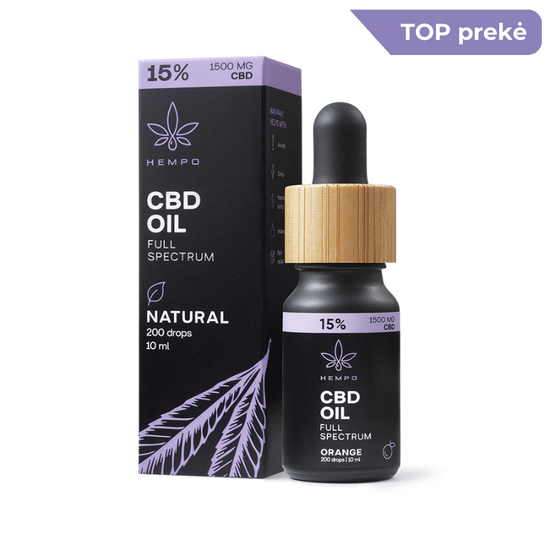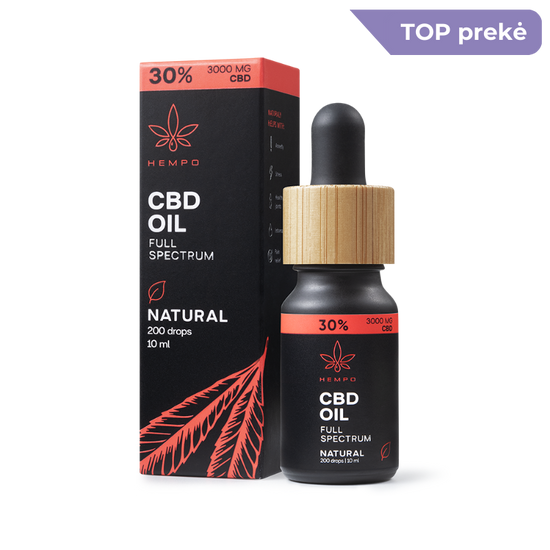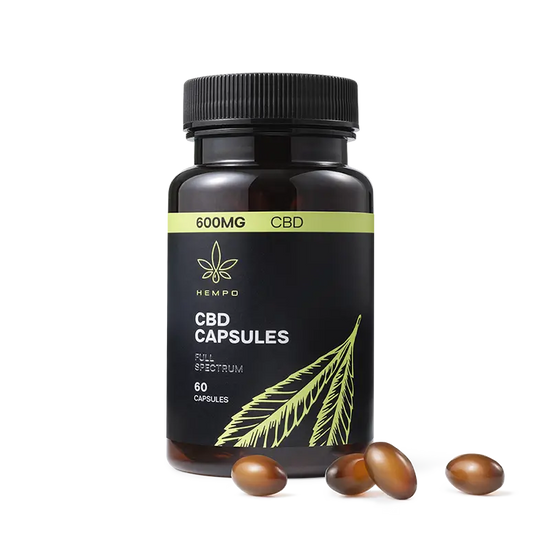CBD and autism is quite a hot and very relevant topic. In fact, CBD, or cannabidiol, can be used to alleviate various symptoms of autism.
Autism spectrum disorders vary in severity and neurological origin. They usually affect development. Autism is characterised by challenges, such as communication difficulties, attention problems, lack of socialisation, limited interest in the environment and strong reactions to stimuli (e.g. noise). Over the past three decades, the number of children diagnosed with autism has increased several times. According to various estimates, approximately 1 in 54 individuals are now diagnosed with autism. Some people with autism also have a variety of co-occurring medical conditions, such as epilepsy, intellectual disabilities and behavioural problems.
The cause of autism is not yet fully known. Scientists and doctors hypothesise that several genetic and environmental factors may be involved.
Straipsnio turinys
Note: This and other articles on Hempo's blog are for informational purposes only. According to the directive of the European Commission, cannabidiol is classified as a 'novel food', therefore CBD products should not be used as a food supplement in Lithuania.

CBD and autism: when does it help?
1. Controlling temper tantrums. Anger and aggression are typical symptoms of autism. Children and adults with more severe social and communication problems often experience higher than normal levels of stress.
High levels of stress make it difficult to control emotions, leading to episodes of aggression and anger. Luckily, cannabidiol is a great helper here. CBD has long been known to help manage perceived stress levels. Regular use of CBD stimulates the release of serotonin, known as the happy hormone, and other positive hormones. It lifts the mood, reduces tension and increases self-confidence, making it easier to react and participate in various social situations. The latter property of CBD was proven by a scientific study conducted in the United States in 2015.
2. Appetite improvement/control. A common problem of children and adults with autism today is various nutritional disorders: food selectivity (e.g. due to sensitivity to stimuli, a person cannot eat specific fruits, vegetables or certain dishes) and irregular, unbalanced diet. Most of the time, it means that preference is given to unhealthy foodstuffs, semi-finished products and snacks, while fruit and vegetables are more often refused. It can lead to being overweight and a general deterioration of well-being.
CBD can help regulate appetite while also treating symptoms commonly associated with obesity.
3. Concentration.
Some patients with a autism spectrum disorder may find it hard to focus on things that do not interest or stimulate them. It includes a wide range of activities that require prolonged attention, such as reading a book, attending classes, doing monotonous office work, etc.
CBD can reduce distraction while increasing alertness and attentiveness. At the same time, this cannabinoid positively affects concentration and memory, strengthens the sense of calmness and balances the mood.
CBD and THC: are they the same?
In reality, these compounds have many fundamental differences, and human and animal bodies accept them very differently. Here are the aspects to consider.
- Effect on the mental health
The THC compound is best known for its intoxicating effect – the psychoactive response. This cannabinoid is a well-known hallucinogen that causes intoxication, hallucinations and other psychedelic effects. Because of these properties, THC is illegal in Lithuania and many other countries or its content in the respective products is limited.
Meanwhile, the CBD compound has no psychoactive effect and does not cause intoxication or other unpleasant sensations. Although CBD products can contain up to 0.02% trace amounts of THC, this minimal amount is not enough to cause any psychoactive response. CBD is known to have many health benefits and does not cause the side effects of THC. It means that CBD may be a perfect choice for people diagnosed with autism spectrum disorders.
- Health benefits
There are many health benefits associated with CBD oil. CBD binds to endocannabinoid receptors in your body. Most people find that CBD helps with autism symptoms and other complex issues like arthritis, Crohn’s disease, diabetes, multiple sclerosis and cancer. Others use it for milder day-to-day problems such as skin problems (dryness/acne), sleep problems, anxiety, various pains, neurological disorders or weakened immune system. Cannabidiol is available over the counter in many countries and does not require a separate license or prescription.
- Undesirable side effects
CBD rarely has noticeable side effects, even when the product is used in relatively high doses. CBD is widely used by athletes and people with various medical conditions, so it can be considered safe for almost everyone (unless doctors tell you otherwise).
That being said, THC has some well-known side effects, such as increased pulse rate, incoordination, nausea, dry mouth, red eyes, slowed reaction time or impaired short-term memory. These side effects are related to the compound’s psychoactive properties and may not be good for people with certain health conditions, including autism.
Clearly, high-quality, certified cannabidiol appears to be a very promising solution to treat behavioural problems associated with autism. CBD products also improves concentration, appetite and digestion, making it very important for people with autism spectrum disorders.
This means that CBD and autism are a truly noteworthy combination that can significantly improve your quality of life!





